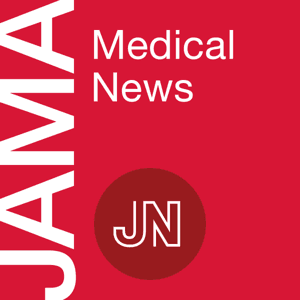In this episode of CME on the Go, our hosts delve into a variety of topics crucial for the care of pregnant patients. They explore patient queries regarding travel, nutrition, exercise, and common pregnancy symptoms, offering evidence-based advice along the way. The episode also recommends various resources for both patients and healthcare providers, including useful apps and books to navigate the journey of pregnancy
Learning objectives
-
Describe common but often under-discussed pregnancy-related symptoms—such as round ligament pain, varicose veins, GERD, and sleep disturbances—and their appropriate management strategies.
-
Differentiate between typical nausea and vomiting in pregnancy and hyperemesis gravidarum, and recommend evidence-based non-pharmacologic treatments.
-
Summarize lifestyle guidance for pregnant patients, including safe exercise, nutrition, and environmental considerations, to support symptom relief and overall well-being.
The AAFP has reviewed Expecting the Unexpected: The Pregnancy Side Effects Nobody Warned You About and deemed it acceptable for up to 0.50 Enduring Materials, Self-Study AAFP Prescribed credits. Term of Approval is from 1/19/2026 to 6/4/2027. Physicians should claim only the credit commensurate with the extent of their participation in the activity.
The AAFP is accredited by the Accreditation Council for Continuing Medical Education (ACCME) to provide continuing medical education for physicians.
The American Academy of Family Physicians designates this Enduring Materials for a maximum of 0.50 AMA PRA Category 1 credits™. Physicians should claim only the credit commensurate with the extent of their participation in the activity.
After listening to the podcast episode, claim 0.5 AAFP credit by following the provided link.
https://www.aafp.org/assessment/take/19632/e
References and Resources
Fejzo, M., Rocha, N., Cimino, I. et al. GDF15 linked to maternal risk of nausea and vomiting during pregnancy. Nature 625, 760–767 (2024). https://doi.org/10.1038/s41586-023-06921-9
The windsor definition for hyperemesis gravidarum: A multistakeholder international consensus definition Jansen, L.A.W. et al. European Journal of Obstetrics and Gynecology and Reproductive Biology, Volume 266, 15 - 22
Einarson A, Maltepe C, Boskovic R, Koren G. Treatment of nausea and vomiting in pregnancy: an updated algorithm. Can Fam Physician. 2007;53(12):2109-2111
https://www.cdc.gov/niosh/reproductive-health/prevention/heat.html?CDC_AAref_Val=https://www.cdc.gov/niosh/topics/repro/heat.html
https://www.nhs.uk/pregnancy/finding-out/health-things-you-should-know-in-pregnancy/
https://www.acog.org/clinical/clinical-guidance/committee-opinion/articles/2020/04/physical-activity-and-exercise-during-pregnancy-and-the-postpartum-period
Disclosure: It is the policy of the AAFP that all individuals in a position to control content disclose any relationships with commercial interests upon nomination/invitation of participation. Disclosure documents are reviewed for potential conflicts of interest and, if identified, conflicts are resolved prior to confirmation of participation. Only those participants who had no conflict of interest or who agreed to an identified resolution process prior to their participation were involved in this CME activity. All individuals in a position to control content for this session have indicated they have no relevant financial relationships to disclose.
Disclaimer: Copyright 2025. AAFP. The views presented in this broadcast are the speaker's own and do not represent those of AAFP. The information presented is for general, educational, or entertainment purposes and should not be considered legal, health, financial, or other advice. AAFP makes no representation as to the accuracy or completeness of the information and is not responsible for results that may arise from its use. Consult an appropriate professional concerning your specific situation and respective governing bodies for applicable laws. Reference to any specific product or entity does not constitute an endorsement or recommendation by AAFP unless specifically stated otherwise. AAFP and the AAFP logo are registered trademarks of American Academy of Family Physicians.




































